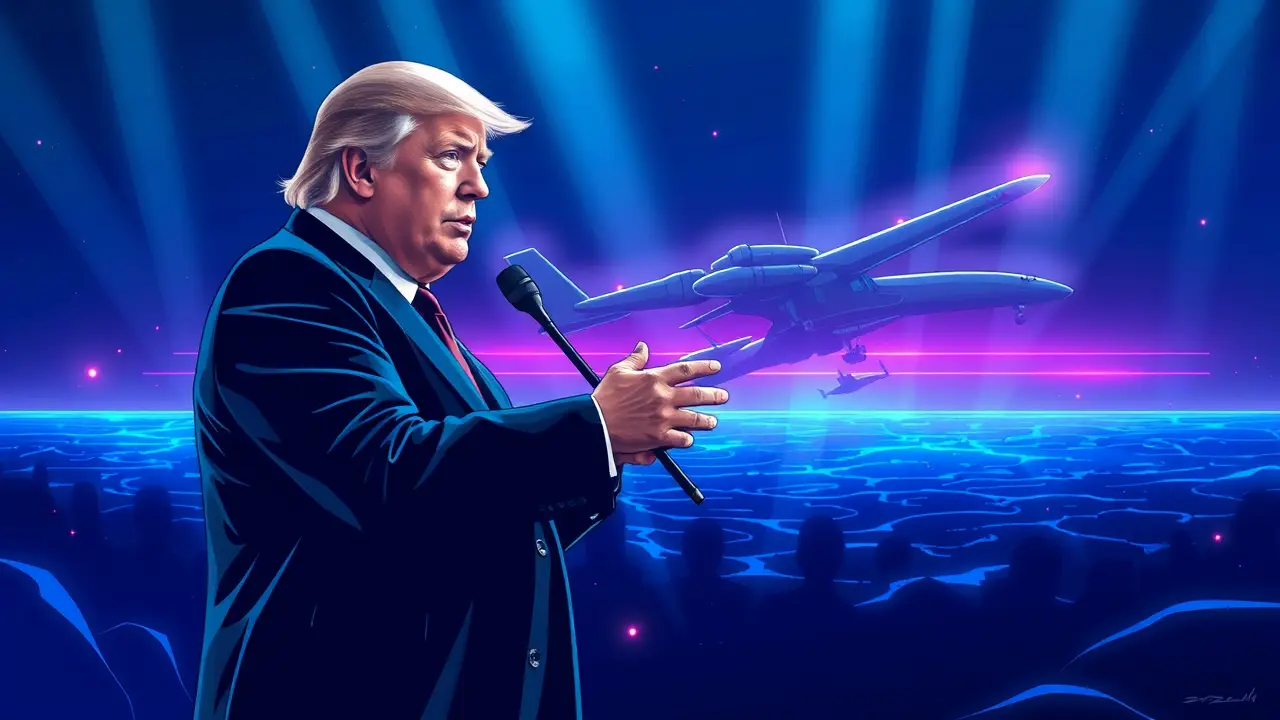Trump Labels Colombian President a Drug Dealer
In a political maneuver that feels ripped from a high-stakes campaign war room, former President Donald Trump has launched a characteristically incendiary broadside, publicly labeling Colombian President Gustavo Petro a 'drug dealer. ' This explosive accusation isn't happening in a vacuum; it's a direct, tactical counter-punch in a rapidly escalating diplomatic firefight.The provocation came hot on the heels of President Petro's own severe allegations, where he pointed a finger at the U. S.government, accusing it of assassination and demanding urgent answers following a recent American military strike in Caribbean waters—an operation whose details remain shrouded in the kind of classified opacity that fuels international distrust. To understand this volatile exchange is to look beyond the surface-level name-calling and recognize it as a masterclass in political jujitsu, where Trump, ever the strategist, is seeking to reframe the narrative.By deploying the 'drug dealer' epithet, he's attempting to tap into a deep-seated, decades-old American political narrative that has often simplistically linked Latin American leaders with the narcotics trade, a well-worn playbook designed to discredit and delegitimize an adversary in the eyes of the domestic audience. This isn't just an insult; it's a calculated media grenade thrown to dominate headlines and shift the focus away from Petro's own serious, and frankly, more diplomatically damaging, charge of state-sponsored assassination.The backdrop here is critical. Petro, Colombia's first leftist president, represents a dramatic shift from the traditionally Washington-aligned leadership, advocating for policies like agrarian reform and a new approach to the drug war that directly challenges long-standing U.S. interdiction strategies.The American strike that triggered this crisis is likely part of these very strategies, perhaps targeting drug-running vessels, but Petro's framing of it as a potential extrajudicial killing on the fringes of Colombian sovereignty changes the game entirely. It elevates the dispute from a policy disagreement to a fundamental question of national sovereignty and imperial overreach.From a campaign perspective, Trump's response is perfectly pitched for his base, reinforcing his image as a blunt-talking strongman unwilling to kowtow to foreign critics, while simultaneously putting the Biden administration in a bind. How will the State Department respond? Will they distance themselves from Trump's rhetoric while defending the military action? This incident exposes the fragile state of the U.S. -Colombia alliance, a cornerstone of regional policy for a generation.The potential consequences are profound: a fraying of intelligence-sharing networks, a reconsideration of military cooperation, and a potential opening for other global powers like China to increase their influence in a region America has long considered its backyard. This is more than a war of words; it's a battle for narrative control with real-world implications for hemispheric stability, trade, and the ongoing, intractable fight against cartels. In the grand theater of political strategy, Trump has fired a volley meant to resonate on the campaign trail, but the reverberations will be felt in diplomatic corridors from Bogotá to Washington for years to come.
It’s quiet here...Start the conversation by leaving the first comment.
© 2025 Outpoll Service LTD. All rights reserved.
